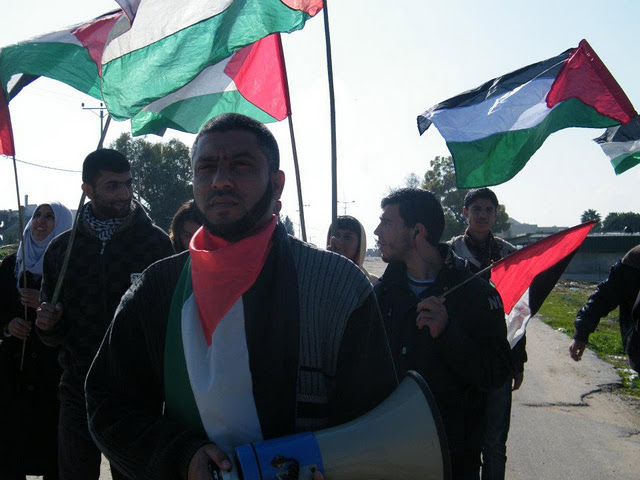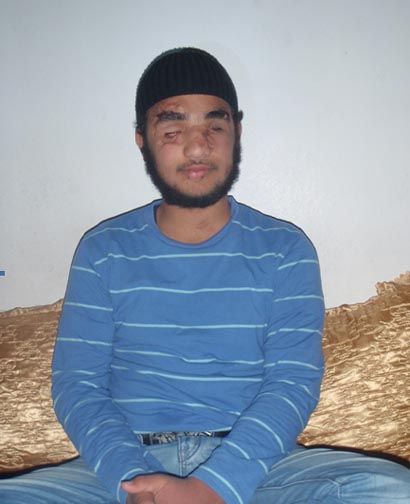-
Beit Hanoun commemorates 3 years since operation ‘Cast Lead’
by Rosa Schiano 7 January 2012 | il blog di Oliva On Tuesday there was another demonstration in Beit Hanoun against the “buffer zone” imposed by the Israeli army in the Gaza Strip. The demonstrators also commemorated the over 1400 Palestinians killed during operation “Cast Lead”. The demonstration started at about 11.00 am. A drone […]
-
7 January 2009 – The Mattar family
7 January 2012 | Palestinian Centre for Human Rights “It would be great if someone could take me to the dessert and leave me there, that way I wouldn’t have to see people” At around 09:30 on 7 January 2009, Israeli forces targeted the al-Taqwa Mosque in the Sheikh Radwan district of Gaza City. The […]
Action Alert An Nabi Saleh Apartheid Wall Arrests BDS Bethlehem Bil'in Cast Lead Demonstration Denial of Entry Ethnic Cleansing Farmers Gaza Global Actions Hebron House Demolition International law Israeli Army Jerusalem Live Ammunition Nablus Ni'lin Prisoner Ramallah Rubber-coated steel bullets Settlement Settlers Settler violence Tear-Gas Canister Video


